More Stories
Cops say it was one of the most dangerous jobs on the police
force.
"You see the crime, you see the criminal, you go get
it," retired Anti-Crime Unit cop Angel Maysonet said.
It was also a job that ultimately ended the life of NYPD Detective
Brian Mulkeen, who was killed by friendly fire while struggling with an armed
man in the Bronx. Mulkeen was part of the NYPD's Anti-Crime Unit in 2019.
"Being in Anti-Crime or Street Crime was proactive policing,
jumping out on people, chasing people," Maysonet said.
Maysonet worked out of the 48th Precinct's Anti-Crime squad in the
Bronx.
"In the 4-8 specifically there was a drug spot on almost
every corner. So, where there was drugs, there had to be people protecting the
drugs with guns," Maysonet said.
The squad was made up of plainclothes officers with one main job -
getting illegal guns off the street.
"Growing up in the hood, it was exciting for me to help make
a difference," Maysonet said.
The squad often came face to face with some of the city's most
violent criminals.
"The criminals back then weren't emboldened -- they didn't
carry guns -- because they knew at any moment a cop could jump out of a
nondescript vehicle, grab them, and get a gun off them," Maysonet said.
But the NYPD disbanded its Anti-Crime Unit last June after a
united call for police reform following the killing of George Floyd in
Minnesota. NYPD Commissioner Dermot Shea at the time cited a
"disproportionate" number of shootings and civilian complaints.
"We can do it with brains, we can do it with guile, we can
move away from brute force," Shea said during his announcement.
Years prior, the NYPD had eliminated the very similar Street Crime
Unit sometime after officers had fatally shot an unarmed Bronx street vendor,
Amadou Diallo, in a barrage of 41 bullets.
Bronx Councilman Kevin Riley tells News 12 he has had several
run-ins with Anti-Crime prior to becoming an elected official.
"I was so afraid at that moment," he said. "They
held us against the wall, put our hands behind our back," Riley continued.
Riley said he was 23 when Anti-Crime officers ambushed him and his
friends while they were hanging out on 219th Street in the Bronx.
"Just because we look a certain way doesn't mean we're
criminals and that's how we were treated that night," he said.
Riley said the cops thought they were robbing a house and they
were ultimately released, but left with a bad taste.
"Whenever I see a siren behind me and I am getting pulled
over my heart drops like literally below my stomach and I am doing nothing
wrong," Ivan May, one of Riley's friends, told us.
Critics say the Anti-Crime squad escalated tensions between cops
and the community -- but gun violence is soaring without them. This year, so
far, there’s been more than 600 shootings compared to last year’s 300 plus. And
more than double the amount compared to 2019, according to the NYPD’s CompStat
tool. For Maysonet, it’s painful to watch.
"It's like bringing a friend from the brink of death --
saving him and now watching him die a slow death," he said.
But police are still making gun arrests even without Anti-Crime.
At least 455 more this year compared to the same time last year, according to
the NYPD.
"We're moving forward -- we are re-imagining now what is
neighborhood policing," NYPD Chief of Patrol Juanita Holmes told News 12.
Holmes said the NYPD is still getting the job done using precision
policing, which is concentrating more cops in specific high-crime areas. She
said the department is also expanding technology like ShotSpotter, which uses
artificial intelligence to detect gunfire.
"Forty-four percent of the times we responded, arrests were
made and that's key," Holmes said.
The chief of patrol also made a point that cooperation is just as
important.
"But in order for the community to do that -- they need to
trust."
When Anti-Crime was disbanded -- the cops either made detective or
went back to patrol. Some also became part of Public Safety -- working with
other officers to grab guns -- but in uniform rather than plainclothes. Critics
have slammed these moves -- calling them "surface-level."
"You cannot take the violence out of the police by moving
them from one place to another," Sala Cyril, spokesperson for Communities
United for Police Reform, said.
Communities United for Police Reform continues to push for defunding
the NYPD and re-allocating the money to mental health and youth services.
Councilman Riley said getting rid of Anti-Crime has increased transparency and
that's a step in the right direction.
"I want to see my NYPD officer, I want to know your name, I
want to be able to come to you if I have an issue, I really feel like that
Anti-Crime Unit didn't give us a chance to do so."
But Maysonet said it was Anti-Crime that gave some of the most
vulnerable New Yorkers a shot at a safer life.
"If you make enemies with the police you better make friends
with the criminals because that's your only alternative."
Text and reporting by Anthony Carlo
More from News 12
3:49
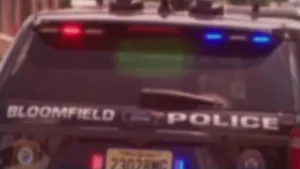
Grand jury declines to file charges against police officers who shot motorist in New Jersey
3:50
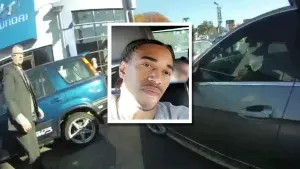
Shooting of unarmed motorist by Bloomfield police will be investigated by grand jury
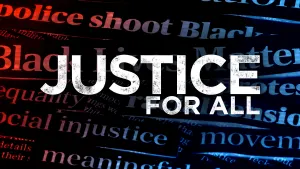
Justice For All Town Hall: Has anything changed in NYC since George Floyd was killed by police?
3:50
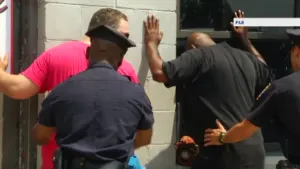
Justice for All: An in-depth look at the NYPD’s neighborhood policing program
6:29
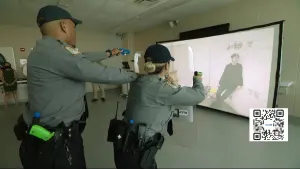
Justice For All: NYPD takes News 12 inside its police academy
5:07
